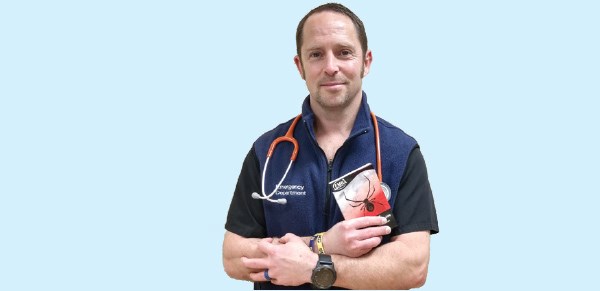To highlight the varied opportunities in the field of medical toxicology, the EMRA Toxicology Committee will be publishing a series of Q-and-A discussions. You will hear from a variety of people: from recently matched residents to current fellows to seasoned attendings. It is our hope that these interviews will not only deepen your understanding of medical toxicology, but also increase your interest in it. Our inaugural interview is with Ken Katz, the editor-in-chief of the recently published EMRA and ACMT Medical Toxicology Guide.
Where did you attend residency?
Christiana Care Health System in Newark, DE
Where was your medical toxicology fellowship? Why did you choose that program?
Banner University Medical Center in Phoenix. I chose that program because of the outstanding medical toxicology attendings and unique educational opportunities.
Why did you pursue a career in medical toxicology?
I’ve always enjoyed the logical, mechanistic aspect of medical toxicology. Moreover, understanding the basic science of a drug or toxin and its interaction with the body is fascinating. Also, it requires good diagnostic skills at the bedside and an opportunity to truly think about clinical presentations and treatments.
Where do you currently practice medical toxicology? How have you divided your time between emergency medicine and medical toxicology?
Lehigh Valley Health Network in Allentown, PA. I spend approximately half my time as an emergency physician and the other half practicing medical toxicology.
What are some of the misconceptions about medical toxicology that you have encountered?
I was once rounding in the hospital, and someone asked me what a taxidermist was. For once in my life I had no reply.
What are some of the challenges that medical toxicologists will face in the next decade?
I think medical toxicologists are seeing their role grow in the field of addiction medicine and as providers for medication assisted treatment both in the inpatient and outpatient settings.
You are the creator of the EMRA and ACMT Medical Toxicology Guide. What made you want to write this publication?
After nearly 15 years of answering literally thousands of questions from all different health care providers both on the phone and in the hospital, it became evident that providing an efficient, pragmatic guide for health care providers at the bedside was needed to help clinicians care for the poisoned patient.
Why should someone consider a career in medical toxicology?
I think it offers a variety of opportunities in many different arenas — from industry and government to inpatient and outpatient clinical settings and much more.
What advice do you have for those considering a career in medical toxicology?
Honestly, if you are thinking of completing a medical toxicology fellowship, don’t wait — do it right after residency.
How does a resident become a strong applicant for fellowship?
I would advise participating in a medical toxicology rotation or offering to assist with any research opportunities, for starters. Showing interest and participating are paramount. Also attending a medical toxicology conference is another opportunity to meet other toxicologists and find out more about fellowship programs. There are almost 30 medical toxicology fellowships.
How does one determine which program is a good fit for him/ her?
Honestly, this is a personal decision based on many factors — much the same as those used to determine residency. Personally, I looked for unique or interesting curriculum offerings that set a certain program apart from others. But a resident will be well-trained in any accredited fellowship program.
FIND OUT MORE
EMRA resident and alumni members receive the EMRA and ACMT Medical Toxicology Guide as a benefit of membership. To order additional copies, visit emra.org/guides.
To learn more about toxicology fellowships, read the Toxicology Fellowships chapter in the EMRA Fellowship Guide.



